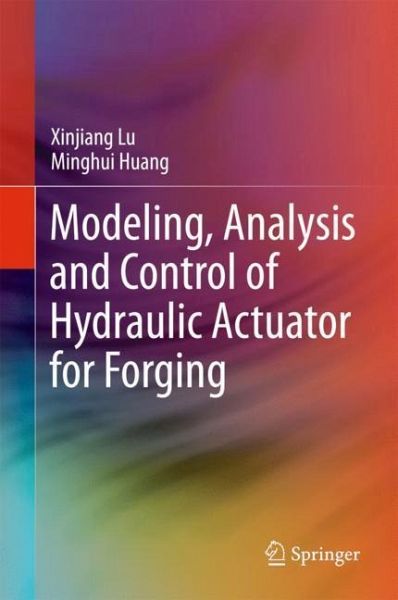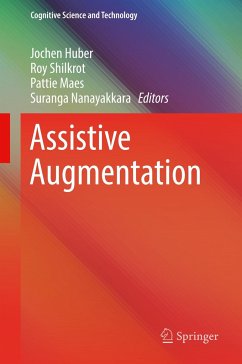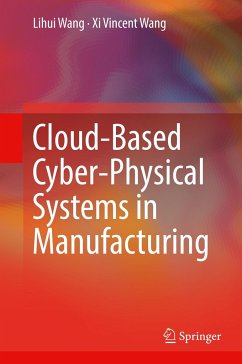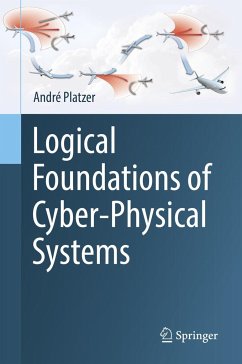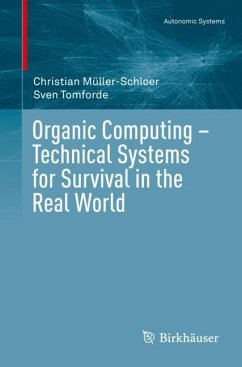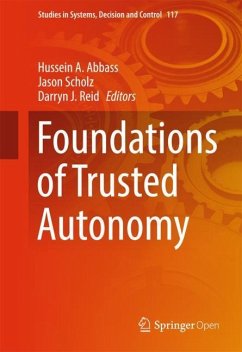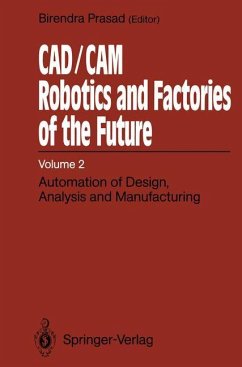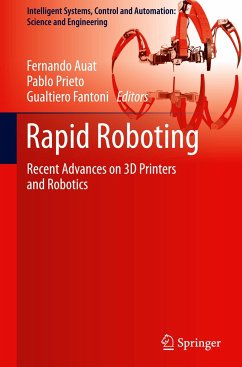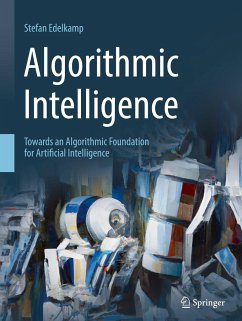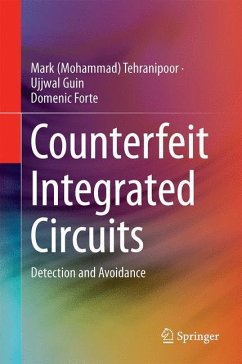XinJiang Lu received the B.E. and M.E. degrees in the School of Mechanical & Electrical Engineering, Central South University, China, and the Ph.D degree in the Department of Manufacturing Engineering and Engineering Management, City University of Hong Kong. Currently, he is currently a Professor of the School of Mechanical & Electrical Engineering, Central South University. Dr. Lu has broad interest in academic as well as applied research. He has published 1 book with John Wiley & Sons in 2014, and published over 30 SCI journal papers and more than 20 conference papers. As PI, he has taken charge of 8 projects. His current research interests are in modeling and control of hydraulic actuator, data learning, process modeling and control, robust design, integration of design and control. Dr. Lu serves as one of the Editorial Board Members in both International Journal of Industrial and Manufacturing Systems Engineering and International Journal of Computer& Software Engineering. He was awarded New Century Excellent Talents award by the Chinese Ministry of Education in 2013, Hiwin Doctoral Dissertation Award in 2011, Excellent Thesis Award for Master's Degree of both Hunan Province and Central South University respectively in 2007 and 2006. He is a member of IEEE. The list of the selected publications: [1] Lu X.J., Zou W., Huang M.H., A Novel Spatiotemporal LS-SVM Method for Complex Distributed Parameter Systems with Applications to Curing Thermal Process, IEEE Transactions on Industrial Informatics, 12(3), pp.1156 - 1165, 2016. [2] Fan B., Lu X.J*., Huang M.H., A Novel LS-SVM Control for Unknown Nonlinear Systems with Application to Complex Forging Process, Journal of Central South University, 2016 (Accepted) [3] Fan B., Lu X.J*., Li H.X., Probabilistic Inference based Least Squares Support Vector Machine for Modeling under Noisy Environment,IEEE Trans. Systems, Man, and Cybernetics: Systems, 10.1109/TSMC.2016.2531674, 2016. (Accepted) [4] Zhou C., Lu X.J*.,Huang M.H., Dempster-Shafer theory-based robust least squares support vector machine for stochastic modelling, Neurocomputing, 182, pp.145-153i 2016. [5] Lu X.J., Zhou C., Huang M.H., Lv W.B. Regularized online sequential extreme learning machine with adaptive regulation factor for time-varying nonlinear system, Neurocomputing, 174¿pp.617-626, 2016. [6] Lu X.J., Liu C., Huang M.H. Online Probabilistic Extreme Learning Machine for Distribution Modeling of Complex Batch Forging Processes, IEEE Transactions on Industrial Informatics, 11(6), pp.1277-1286, 2015. [7] Lu X.J. , Zou W., Huang M.H. An adaptive modeling method for time-varying distributed parameter processes with curing process applications, Nonlinear Dynamics, 82(1), pp. 865-876, 2015¿ [8] Lu X.J., Fan B., Huang, M.H. (2015). A Novel LS-SVM Modeling Method for a Hydraulic Press Forging Process with Multiple Localized Solutions, IEEE Transactions on Industrial Informatics, 11(3), pp. 663-670, 2015. [9] Lu X.J. , Zou W., Huang M.H., Deng K. (2015). A process/shape-decomposition modeling method for deformation force estimation in complex forging processes, International Journal of Mechanical Sciences, 90, pp.190-199, 2015. [10] Lu X.J. , Huang M.H. (2015). Two-Level Modeling Based Intelligent Integration Control for Time-Varying Forging Processes, Industrial and engineering chemistry research, 54, pp.5690-5696, 2015. [11] Lu X.J., Huang M.H., (2015). A Novel Multi-level Modeling Method for Complex Forging Processes on Hydraulic Press Machines, International Journal of Advanced Manufacturing Technology,79(9), pp.1869-1880, 2015. [12] Lei J., Lu X.J., Li Y.B., Huang M.H., Zou W., (2015). Approximate-model Based Estimation Method for Dynamic Response of Forging Processes, CHINESE JOURNAL OF MECHANICAL ENGINEERING, 28(3), pp.565-572, 2015. [13] Lu X.J. , Li H.X., Huang M.H. (2014). Data-Driven Robust Design for a Curing Oven, IEEE Trans. on Components, Packaging and Manufacturing Technology, 4(8), pp. 1366-1373, 2014. [14] Lu X.J. , Li H.X., Huang M.H. (2014). Stability and robust design using a sector nonlinearity approach for nonlinear manufacturing systems, Mechanism and Machine Theory, 82, pp. 115-127, 2014. [15] Lu X.J. , Huang M.H. (2014). A KL/Subspace Modeling Method for Integrated Design and Control in Curing Processes, Industrial and engineering chemistry research, 53, pp. 14377-14384, 2014. [16] Lu X.J. , Huang M.H. (2014). A simple online modeling approach for a time-varying forging process, International Journal of Advanced Manufacturing Technology, 75, pp. 1197-1205, 2014 [17] Lu X.J., Li Y.B., Huang M.H. (2013). Operation-region-decomposition-based SVD/NN Modeling Method for Complex Hydraulic Press Machines, Industrial & Engineering Chemistry Research¿52, pp.17221-17228, 2013. [18] Lu X.J. & Huang, M.H. (2013). Nonlinear-Measurement-Based Integrated Robust Design and Control for Manufacturing System, IEEE Trans. on Industrial Electronics, 60(7), pp.2711-2720, 2013. [19] Lu X.J. & Huang, M.H. (2013). Multi-domain modeling based robust design for nonlinear manufacture system, International Journal of Mechanical Sciences, 75, pp.80-86, 2013. [20] Lu X.J. & Huang, M.H. (2012). System decomposition based multi-level control for hydraulic press machine. IEEE Trans. on Industrial Electronics , 59(4), pp. 1080-1087, 2012. [21] Lu X.J. & Li, H.-X. (2012). Model based probabilistic robust design with data-based uncertainty compensation for model uncertainty. ASME Trans. on Journal of Mechanical Design, 134(2), pp. 021004, 2012. [22] Lu X.J. & Li, H.-X. (2012). Probabilistic robust design for covariance minimization of nonlinear system. Mechanism and Machine Theory, , 52, pp. 195-205, 2012. [23] Lu X.J. & Li, H.-X. (2011). Robust Design for Dynamic system under Model Uncertainty. ASME Trans. on Journal of Mechanical Design, 133(2), pp:021006. [24] Lu X.J. & Huang, M.H. (2011). Subspace modeling based Nonlinear Measurement for Process Design. Industrial & Engineering Chemistry Research , 50, 13457-13465. [25] Lu X.J. Li, H.-X., & Yuan, X. (2010). PSO-based intelligent integration of design and control for a kind of curing process. Journal of process control, 20, 1116-1125 [26] Lu X.J., Li, H.-X., Chen C. L. (2010). Variable sensitivity based deterministic robust design for nonlinear system. ASME Trans. on Journal of Mechanical Design. 132¿6¿¿pp: 064502. [27] Lu X.J., Li, H.-X., Chen C. L. (2010). Robust Optimal Design with Consideration of Robust Eigenvalue Assignment. Industrial & Engineering Chemistry Research, 49 (7), pp: 3306-3315. [28] Lu X.J., Li, H.-X. *, Duan J.-A., Sun D. (2010). Integrated Design and Control under Uncertainty: A Fuzzy Modeling Approach. Industrial & Engineering Chemistry Research. 49(3), pp:1312-1324. [29] Lu X.J. & Li, H.-X. (2009). Perturbation Theory based Robust Design for Model Uncertainty. ASME Trans. on Journal of Mechanical Design. 131(11), pp:111006. [30] Lu X.J. & Li, H.-X. (2009). Stability based Robust Eigenvalue Design for Tolerance. ASME Trans. on Journal of Mechanical Design. 131(8), pp: 081007. MingHui Huang received the B.E., M.E. and Ph.D degrees in the School of Mechanical & Electrical Engineering, Central South University, China. Currently, he is a full professor of the School of Mechanical & Electrical Engineering, Central South University. He was awarded both "Chang Jiang Scholar" and New Century Excellent Talents award by the Chinese Ministry of Education, China. His research interests include forging forming, machine design and manufacturing, design theory, fault diagnosis, digital manufacturing. The list of the selected publications: [1] Lu X.J., Zou W., Huang M.H., A Novel Spatiotemporal LS-SVM Method for Complex Distributed Parameter Systems with Applications to Curing Thermal Process, IEEE Transactions onIndustrial Informatics, 12(3), pp.1156 - 1165, 2016. [2] lex="" forging="" process,="" journal="" of="" central="" south="" university,="" 2016="" (accepted) [3] Zhou C., Lu X.J*.,Huang M.H., Dempster-Shafer theory-based robust least squares support vector machine for stochastic modelling, Neurocomputing, 182, pp.145-153i 2016. [4] Lu X.J., Zhou C., Huang M.H., Lv W.B. Regularized online sequential extreme learning machine with adaptive regulation factor for time-varying nonlinear system, Neurocomputing, 174¿pp.617-626, 2016. [5] Lu X.J., Liu C., Huang M.H. Online Probabilistic Extreme Learning Machine for Distribution Modeling of Complex Batch Forging Processes, IEEE Transactions on Industrial Informatics, 11(6), pp.1277-1286, 2015. [6] Lu X.J., Zou W., Huang M.H.^ations, Nonlinear Dynamics, 82(1), pp. 865-876, 2015¿ [7] Lu X.J., Fan B., Huang, M.H. (2015). A Novel LS-SVM Modeling Method for a Hydraulic Press Forging Process with Multiple Localized Solutions, IEEE Transactions on Industrial Informatics, 11(3), pp. 663-670, 2015. [8] Lu X.J. , Zou W., Huang M.H., Deng K. (2015). A process/shape-decomposition modeling method for deformation force estimation in complex forging processes, International Journal of Mechanical Sciences, 90, pp.190-199, 2015. [9] Lu X.J. , Huang M.H. (2015). Two-Level Modeling Based Intelligent Integration Control for Time-Varying Forging Processes, Industrial and engineering chemistry research, 54, pp.5690-5696, 2015. [10] Lu X.J., Huang M.H., (2015). A Novel Multi-level Modeling Method for Complex Forging Processes on Hydraulic Press Machines, International Journal of Advanced Manufacturing Technology,79(9), pp.1869-1880, 2015. [11] Lei J., Lu X.J., Li Y.B., Huang M.H., Zou W., (2015). Approximate-model Based Estimation Method for Dynamic Response of Forging Processes, CHINESE JOURNAL OF MECHANICAL ENGINEERING, 28(3), pp.565-572, 2015. [12] Lu X.J. , Li H.X., Huang M.H. (2014). Data-Driven Robust Design for a Curing Oven, IEEE Trans. on Components, Packaging and Manufacturing Technology, 4(8), pp. 1366-1373, 2014. [13] Lu X.J. , Li H.X., Huang M.H. (2014). Stability and robust design using a sector nonlinearity approach for nonlinear manufacturing systems, Mechanism and Machine Theory, 82, pp. 115-127, 2014. [14] Lu X.J. , Huang M.H. (2014). A KL/Subspace Modeling Method for Integrated Design and Control in Curing Processes, Industrial and engineering chemistry research, 53, pp. 14377-14384, 2014. [15] Lu X.J. , Huang M.H. (2014). A simple online modeling approach for a time-varying forging process, International Journal of Advanced Manufacturing Technology, 75, pp. 1197-1205, 2014 [16] Lu X.J., Li Y.B., Huang M.H. (2013). Operation-region-decomposition-based SVD/NN Modeling Method for Complex Hydraulic Press Machines, Industrial & Engineering Chemistry Research¿52, pp.17221-17228, 2013. [17] Lu X.J. & Huang, M.H. (2013). Nonlinear-Measurement-Based Integrated Robust Design and Control for Manufacturing System, IEEE Trans. on Industrial Electronics, 60(7), pp.2711-2720, 2013. [18] Lu X.J. & Huang, M.H. (2013). Multi-domain modeling based robust design for nonlinear manufacture system, International Journal of Mechanical Sciences, 75, pp.80-86, 2013. [19] Lu X.J. & Huang, M.H. (2012). System decomposition based multi-level control for hydraulic press machine. IEEE Trans. on Industrial Electronics , 59(4), pp. 1080-1087, 2012.
